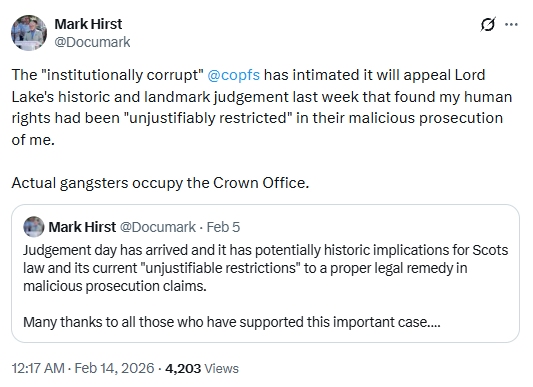THE VALUE OF WOOL.
An article that is necessary because of the enormous failure of our politicians to act in energy rich Scotland. We lie powerless to defend our people. It should be a National disgrace. A guest post from Ellie MacGregor who lives in Angus and is a spinner and fibre crafter. She shares advice and ideas onContinue reading "THE VALUE OF WOOL."
An article that is necessary because of the enormous failure of our politicians to act in energy rich Scotland. We lie powerless to defend our people. It should be a National disgrace.

A guest post from Ellie MacGregor who lives in Angus and is a spinner and fibre crafter. She shares advice and ideas on her twitter feed on how to save money. @Thrifty_Corner.
A little about me before I begin. I was born and lived in Leicestershire till 2010 when I came up to Scotland to begin a new life. I’d grown up spending many weekends with my grandparents, who had lived through WWII and learned to be thrifty to survive. They had continued to make do and mend through much of their lives as it seemed sense to them, extra money could be saved to pay for holidays to the Highlands where their ancestors had once lived. So I was actively encouraged to learn new skills to make things for myself and to be creative. At secondary school we learned cooking, household budgeting and life skills that would help me in the future. As I got older those ideas stuck, and though I’m able to do many things, I’m not a professional. Poor health means I’m currently unable to work, and with the cost of living crisis, those skills are even more important so I can hopefully continue to exist.
I’m always reminded of the well known saying “Give a Man a Fish, and You Feed Him for a Day. Teach a Man To Fish, and You Feed Him for a Lifetime”. The same can be said for those important homemaking life skills and handicrafts. It’s not just the cost of living crisis that calls for these skills and ideas, but climate change and the very uncertain future facing us all on this planet. While governments play their political point scoring games and brag about who is leading the world, we need more practical ideas that people can do now. Financial aid would be the easiest solution, but as we’ve seen, it’s minimal and we are made to feel the need to tug on forelocks and be grateful for basically nothing, whilst being told untruths about the reasons for the problem. It can also create more economic instability if the government continue to heavily tax the less well off and ignore the pleas for windfall taxes on the oil and gas producers and taxing the rich.
I’ve been trying to find ways that I can survive the situation we’re in. As I only receive the basic rate of Universal Credit and am currently unable to work, any solution needs to be either free or at minimal cost. I can cook and I craft with fibre, so utilising my own skills seems a good place to start.
To reduce the amount of energy I use to cook, I made myself a hay box/thermal style cooker. It’s just a sturdy cardboard box, lined with layers of the insulating bubble wrap and waste wool. I have a stainless steel stock pot that fits neatly in the middle. I’ll start cooking a stew on the hob, and at the point where I’m supposed to let it simmer for X amount of time, I make sure it’s at a fast boil with the lid on. I turn off the heat and put the stock pot in the insulated box. Cover the top of the pot, close the box and put an old blanket over it. It’s then left somewhere it won’t be disturbed to cook for the rest of the day. I usually start it during the morning, and by the time I’m ready for my evening meal, it only requires a quick zap in the microwave to reheat and eat. The remainder can be portioned and put in the freezer to eat another time. One obviously must be cautious cooking certain meats and reheating.
There are plenty of resources online for recipes, and I’ve found I can use up to 70% less energy just on cooking. With the prices of both gas and electric increasing massively, that’s a big win for me.
I’m also looking at making myself a ‘Wonder Bag’. https://www.wonderbagworld.com/
Rather than use polystyrene beads I can use wool. An old duvet cover or sheet and even an old curtain would be great to make the actual bag. https://www.instructables.com/How-to-Make-a- Wonder-Box-CookerCooler/ . The less cost to me, the more I can save. Repurposing stuff is always cheaper and better for the environment.
This could be a great asset to those on low incomes. They just need to adapt the way they think about cooking. Making it themselves would give them a sense of pride in what they’ve achieved and give them some encouragement to use it.
But where would they get the wool to make the bag/box?
As a spinner and knitter, I can make 2 sweaters from a single sheep’s fleece. The cost to me is just the fleece and postage. But because farmers only focus on fast and easy profits, the wool is becoming worthless because of the animals being bred purely for meat. Yes, 2 100% pure wool, bespoke, hand spun and hand knitted sweaters for around £30. If one looks online, you can expect to pay three figure amounts for just one quality wool sweater. They can’t just be put in the washing machine with the rest of one’s clothes, but they don’t need to be laundered constantly, as that damages the fibres. If they need washing, then hand wash. Cheaper on energy and no micro plastics, or do as the Scandinavians do, and just hang them to air naturally for a couple of days. Whilst in Turkey, I learned to make a thick blanket using wool fleeces and a couple of old sheets. So there is lot wool can be used for, it’s just not easily available to those on a low income who don’t have their own transport, or for those who lack the knowledge and skills to use it. My speciality is wool and fibre crafts, but there are many other crafts that would be useful to learn. Many of the tools required can be made for little or no cost.While I’d prefer not to be spending £30 on quality spinning wool to make a thermal cooker, there are alternatives.
Most sheep farmers send their wool to the British Wool Board at shearing time. But because wool prices paid are at an all time low, by the time the farmer has paid for shearing the sheep (a necessary process for the welfare and health of the sheep), paid for transport to the wool depot, he is already out of pocket because the wool prices are so poor. Yet, wool products are in demand and sell for very high prices. This discourages farmers from producing better quality wool and focusing on meat only.
I’ve seen many farmers giving away fleeces, or leaving them to rot in a ditch. Some even pour petrol on them and burn them, because they make no money from the wool. It’s not always the best quality, but could easily be utilised.
https://www.britishwool.org.uk/ksupload/userfiles/Farmer/Producer_Booklet/36pp-UK-Combined-A5- BritishWool-Brochure-AUG2021%20-%20interactive.pdf
Wool has many positive properties; it’s an excellent insulator, so why has no-one taken the initiative to use it to insulate buildings? Wool is fire resistant; it’s breathable, biodegradable, renewable, stain and odour resistant as well as being anti-static. Depending on the breed of sheep and fineness of the wool, it’s soft, elastic and adapts to body temperatures to be warm in colder weather yet cool when it’s warm.
https://www.learnaboutwool.com/globalassets/law/resources/factsheets/secondary/gd3270- secondary-fact-sheet_2019_j.pdf
Years ago, the Macaulay Land Use Research Institute developed a breed of sheep in Scotland called the Bowmont. A new breed that could survive the climate, produced soft and fine quality fleece and also good meat animals.
https://macaulay.webarchive.hutton.ac.uk/europeanfibre/effnnew1ar.htm
Sadly in the 90’s, it all ended as apparently EU funding stopped. The flocks were scattered far and wide, and no-one appears to have looked into this since. A shame as we would be less reliant on wool imports (much of the wool used in clothing manufacturing in the UK is imported merino wool from Australia and New Zealand), whilst the majority of our meat animal wool is used in carpets or exported for similar uses. The best we have is the Shetland Islands and the Shetland wool brokers. They pay a fair price to the crofters for the wool.
We have an amazing resource, wool. Many farmers are dumping it because of the poor prices paid, which leaves them out of pocket. Why not utilise this, engage communities to help themselves in reducing how much energy they use, and help those on the lowest incomes to survive this cost of living crisis.
Children in school are no longer taught the basic life skills. Many of them don’t know where their food comes from. Ask them where milk comes from and they’d likely say the supermarket. Many adults don’t even bother to sew on a button and will throw away a garment. How many cook a meal from scratch? How many would even cook and prefer to buy a takeaway? I often see folk asking on social media how to cook broccoli … or how long should they boil and egg? Yes we have the internet, and they could easily look it up. But they don’t or can’t be bothered. Or perhaps they don’t know how, even though many folk have phones with the capability of searching the internet.
Schools need to teach the children basic life skills again. Have crafters and volunteers teach these basic but essential life skills. Re-educate the population to be more conscious of where their food comes from, how to repair clothes rather than toss them into the bin because a button fell off, or a seam came loose. Let them learn different crafts and spark that creativity inside them to learn more about sustainable and environmentally friendly products. As well as learning to make their own. There are wealth of ideas and resources online as well as people in every community that have the knowledge. It just needs an initiative to have those people to share with the wider community.
I know there are community gardens across Scotland, but these could be encouraged more. Link sheep farmers with community projects to utilise their throw away wool. So that people can learn to make a thermal cooker, learn to spin wool into yarn, then knit, weave or crochet items that would help keep them warm next winter.
Not only is this a small way to help ease the cost of living crisis, but it’s utilising a 100% natural and environmentally friendly product and that can help us all as climate change leaves us with a very uncertain future.
I have plenty more ideas for being thrifty, but I can’t put everything into words.
Mahatma Gandhi once said “You must be the change you want to see in the world.”
Ellie MacGregor
More DIY wonder bag links
http://homesteadingdreams.com/wonder-bag-cooker-how-to-sew/ https://www.youtube.com/watch?v=ebOnFRjzVdw https://wonderbag.ie/PDF’s/the_wonderbag_recipe_book.pdf
MY COMMENTS
I want to thank Ellie for this article. It is a bit different to what I would normally publish but given the cost of living crisis and the enormous hike in energy costs any ideas on how to live without facing these enormous bills is very welcome. Her twitter feed @Thifty_Corner also features many other practical suggestions. That these ideas may help people survive is a measure of the dire crisis that many in our communities face today. Quite astonishing that in such a energy rich country as Scotland our electoral choices have resulted in us facing such an energy crisis. we seem to be immune to wake up calls! More pain ahead until we pay much closer attention!
What's Your Reaction?










































